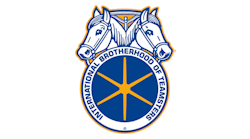The Teamsters Canada Rail Conference is a Leader in Fatigue Management
The Teamsters Canada Rail Conference (TCRC), which represents 12,000 workers in the rail industry, publicly released its Fatigue Risk Guiding Philosophy for the Railway industry. On November 4 the TCRC issued the document to government and industry leadership alike.
Sleep-related fatigue has been a long-standing concern for railway workers, industry, government, and the TCRC. The issue of rail crew fatigue gained national attention thanks to the Foisy Report, which investigated the the Hinton derailment in 1986. It subsequently became the focal point of many labour negotiations, joint stakeholder working groups, external studies, government inquiries and media articles.
The issue of fatigue was also been highlighted by the Railway Safety Act review in 2007, the Advisory Council on Rail Safety, the Standing Committee on Transportation, Infrastructure and Communities. It was also recently included on the Transportation Safety Board's Watchlist.
Unfortunately, despite the attention rail fatigue garnered over the last 30 years, significant improvements remain to be made.
"We openly share this document and favour transparency in communicating our position," explained Douglas Finnson, president of Teamsters Canada Rail Conference who represent approximately 12,000 workers in the rail industry. "Our commitment, our guide in future decisions and the standards for expected daily operations are all consistent with our advocacy for improvements to fatigue management systems and processes."
"It can only be through the TCRC taking a leadership role that our efforts can effectively improve the functional capacity, health, safety, and maintain the productivity of our members", added the union leader. "We also believe all parties are in agreement that a solution must be found that ensures rail crews commence duty alert and rested and that alertness is sustained throughout their tour of duty respecting that rail crews have to meet personal needs and railways need to meet service objectives and implement changes."
The Teamsters enlisted the services of a renowned expert in the field of fatigue and sleep science with intimate knowledge of the transportation industry, to assist in the development of this document and work with the union going forward to achieve its goals.
The union has seen positive outcomes with certain fatigue management applications and continues to work with stakeholders on making improvements consistent with its guiding philosophy.
The TCRC is aware of CP's marketing statements on their recent Web site. The TCRC remains committed to fatigue risk management based on fatigue science in reducing fatigue and improving rail safety not only for its members, but also to protect the general public.

